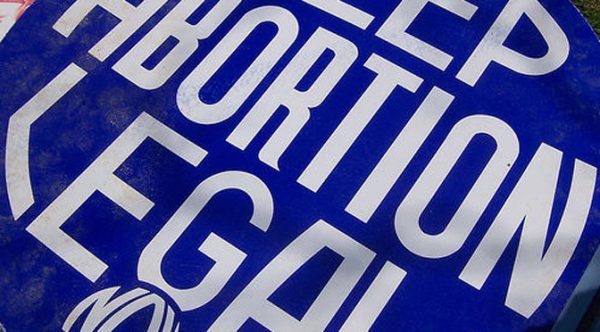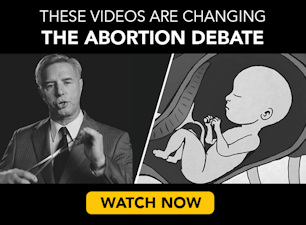In Roe v. Wade, it was held that abortion is protected by “the right of privacy.” What does the Constitution say about this right?
Nothing.
When he authored Roe’s majority opinion, Justice Harry Blackmun admitted “the Constitution does not explicitly mention any right of privacy.” Still, Blackmun was certain it existed. He just wasn’t sure where.
It could be in the Fourteenth Amendment’s “concept of liberty.” Or, maybe it’s “in the penumbras of the Bill of Rights.” Perhaps James Madison stashed the right to privacy somewhere “in the Ninth Amendment.” You know, like when he was busy.
Blackmun did cite over a dozen cases where he felt “the Court or individual Justices had indeed, found at least the roots of that right.” Apparently they forgot to mention doing this.
But even if the Constitution contains an unarticulated right to privacy, why would it protect abortion? I don’t know. I’m not sure Blackmun knew either, because he never gave a reason. He simply insisted that it did.
This right of privacy, whether it be founded in the Fourteenth Amendment’s concept of personal liberty and restrictions upon state action, as we feel it is, or, as the District Court determined, in the Ninth Amendment’s reservation of rights to the people, is broad enough to encompass a woman’s decision whether or not to terminate her pregnancy.
Translation: Because I said so.
Given the quality of this analysis, what could Blackmun have written that I’d agree with? It starts on page 156 of the decision:
The appellee and certain amici argue that the fetus is a “person” within the language and meaning of the Fourteenth Amendment. In support of this, they outline at length and in detail the well known facts of fetal development. If this suggestion of personhood is established, the appellant’s case, of course, collapses, for the fetus’ right to life would then be guaranteed specifically by the Amendment. The appellant conceded as much on reargument.
Some contend preborn children are people but still say abortion should be an issue for the states. Blackmun’s observation shows why that just doesn’t work: if personhood starts before birth, so do the rights that go with it. That includes the right to life, and it doesn’t stop at the state line.

Rebecca Kiessling
He also shows why allowing abortion in cases of rape isn’t compatible with personhood either, a point some pro-lifers should ponder. Rebecca Kiessling and Valerie Gatto were both conceived in rape, and they didn’t deserve the death penalty for that. After all, we don’t punish children for their father’s crimes.
Blackmun acknowledged that if children in the womb are people, then abortion involves “the termination of life entitled to Fourteenth Amendment protection.” Therefore, it could only be permissible if a fetus isn’t a person–which is exactly what he decided.
I’m going to address Blackmun’s arguments for rejecting fetal personhood another time. For now, I’ll let Cassy Fiano illustrate why they’re tough to take seriously:
Science makes it clear that life begins at the moment of fertilization. Scientists have been able to pinpoint the exact moment new human life is created, by capturing the bright flash of light that is emitted as the sperm meets the egg.
At that moment, as soon as the preborn baby is created, there now exists a separate, unique human with his or her own DNA – different from the mother’s or father’s. It is at this moment, the very moment of creation, that we know the preborn baby is a separate being. If the baby was part of the mother’s body, then there shouldn’t be a difference in DNA, but there is.
At 21 days from conception, the baby has a heartbeat. Just a few weeks later, there are measurable brain waves. Remarkable developments are made in the first trimester; if the baby is a girl, her ovaries and uterus are already formed by 10 weeks. The baby has fingernails and her own unique fingerprints, which no other human being will ever share. Before the first trimester is over, a preborn baby has grown all of the organs with which he or she will be born.
Science tells us that the humanity of preborn babies is a simple, biological fact.
I’ll add that Dr. Kanwaljeet Anand’s research at the University of Tennessee indicates a fetus can feel pain at twenty weeks. The idea that someone could have human DNA, respond to pain, and yet still not be a person is flat out absurd. Pro-lifers should help correct it.
You can do that by telling the presidential candidates why Supreme Court appointments matter. Because the fact is, Blackmun was right when said abortion isn’t compatible with fetal personhood; he was just wrong about whether it exists. That mistake needs to be fixed.








